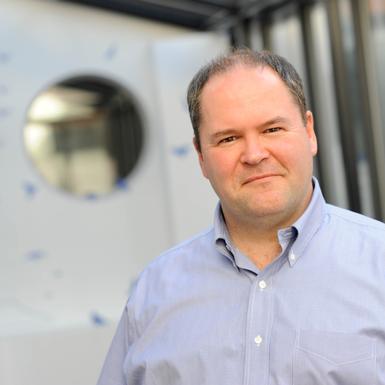An interview with David Elmes
We're aspiring to do better for our local surroundings, for our people and for our planet. We spoke to Professor David Elmes of WBS who is engaged in teaching and researching the business of renewable energy at Warwick.
December 2015

What research and teaching are you involved in at Warwick?
WBS has always been interested in where the relationship between business, government and society is more complex than conventional, free market thinking. The energy industry and issues such as sustainability are important examples where this is the case.
I joined WBS after a career in the energy industry to help the School develop its teaching and research into the supply and use of energy around the world. We are interested in how the structure of the industries involved is changing, how management practices are changing and how the ways companies and governments work together are changing. On the teaching side, we have an MBA programme focused on energy and sustainability – the Warwick Global Energy MBA. I also teach on the WBS general MBA programme and I'm part of the interdisciplinary team organised by IATL who teach the undergraduate module on climate change.
Are you collaborating in research with any other departments?
Very much so. I would say my focus is on business strategy and how companies transform themselves as markets change. Within WBS we draw together skills so that colleagues with a specific focus on sustainability might be working with human geographers who have a different view of the geopolitical economy of energy. The challenges faced by colleagues who study innovation and entrepreneurism might benefit from the perspective that macro-economists bring to the table. Across Warwick I’m collaborating in research programmes with the Engineering department on new technologies for heating and cooling. We’re also working with behavioural scientists, since people don’t always make purely rational, economic decisions about the ways they use energy!
 What do you hope to achieve in your teaching?
What do you hope to achieve in your teaching?
The WBS Global Energy MBA is a part time programme for managers working in industry with established careers in engineering, finance or manufacturing, for example, often moving into more senior roles. Our aim is to give them a broad knowledge of what’s happening across the energy industry, whilst offering management and leadership skills for decision making in complicated times.
There’s the need for a new generation of business leaders to understand the challenges and opportunities that the supply and use of sustainable energy involves. At the undergraduate level, I would hope we demonstrate that those challenges represent opportunities for people studying across the physical sciences, engineering and social sciences to forge great careers in solving our energy problem. Whilst some challenges need scientific or engineering skills, we also need economists, political scientists and people studying law to help governments with their policies. We need psychologists to think about the ways we use energy and smart business people to make it happen. Energy has often been seen as an issue for science or engineering in the past, but actually, it’s a problem for everyone to solve.
What does this mean for the future of research or teaching in this field?
Supply and use of energy counts for two-thirds of global emissions at the moment which makes us both the problem and an essential part of the solution. For both research and teaching, there’s a need to broaden from the supply-side - the technical focus - that’s been dominant in the past. Historically, concerns about energy have been solved by finding new technologies to access more sources of supply, which often means fossil fuels. There’s a shift now with sustainable or renewable supplies of energy becoming competitive, but I also think we need more research into our use of energy across the main markets of transport, building and industrial processes.
If you could change one thing that would make energy use more efficient, what would it be?
That question suggests there’s some single silver bullet solution and I just don’t think it’ll work out that way! Yes, affordable electrical energy storage will make a difference. Yes, political will to directly or indirectly price carbon emissions will make a difference. But I think the most effective strategy to improve things would be a shift from simply looking for more energy supplies to developing a more distributed view where energy is supplied and consumed more locally.
Image: Renewable energies by Uwe Potthoff (via Flickr)
